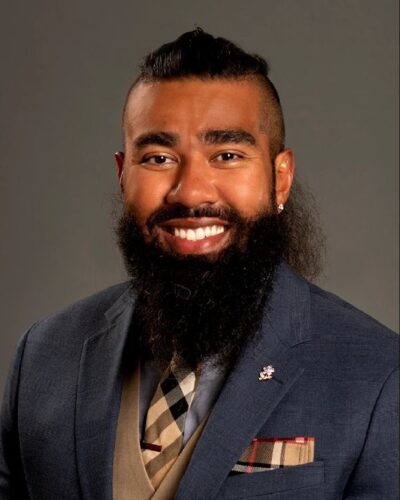
Nafees Alam, assistant professor in the School of Social Work, published “Freedom of Thought” in Deeper Learning Journal of Practice.
This article details Alam’s University Foundations 200 class, Freedom of Thought, and how it improves core skills for the students who take it. Over the course of the class, seven different topics – health, wealth, race, gender, love, sexuality and ideology – are discussed. The students are required to first consider the validity of a viewpoint different from their own, and then discuss what they believe to be true.
Students are encouraged to not provide counter arguments to each other in class, and to work in a “brave space,” as Alam calls it, where they are willing to learn and respect each other while having difficult conversations with those who may have different views.
“Students are not supposed to counterpoint other students in-person or on Zoom because that turns into a debate in pursuit of victory as opposed to a lesson in the pursuit of learning. A brave space is created where students with opinions on different sides of the spectrum can speak candidly and learn from one another,” Alam said.
Alam has received positive feedback from students who say the course helped them understand their own beliefs more, strengthen their thoughts, understand others, and improve their civility and empathy during discussions.